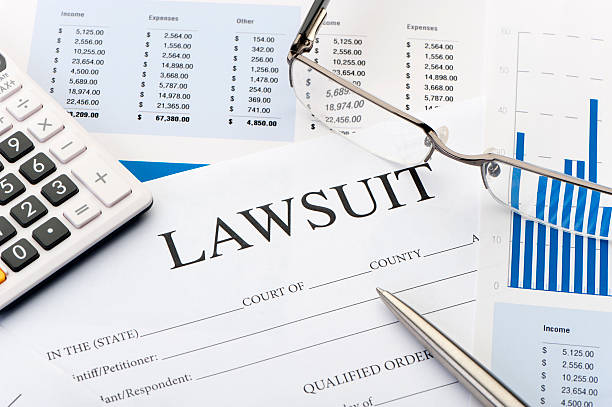Law
The Essential Role of Real Estate Lawyers in Property Investments

Understanding the Complexity of Real Estate Transactions
When considering property investments, prospective investors must recognize the complexities inherent to real estate transactions. Unlike simple exchanges, these transactions involve multiple legal and regulatory obligations. With varying real estate laws across different regions, each transaction presents unique challenges and opportunities. This complexity underscores the necessity of involving a real estate lawyer Portland, OR, whose knowledge can be crucial in navigating the legal terrain. A Real Estate Lawyers understanding of regional nuances can be the difference between a seamless transaction and one fraught with unexpected hurdles. Investors should utilize this knowledge to ensure that their transactions are both financially sound and legally compliant.
Given the multifaceted nature of real estate dealings, professional guidance isn’t just beneficial—it’s essential. The real estate market is ripe with pitfalls that could disrupt transactions and lead to financial or legal repercussions. Legal professionals, mainly those well-versed in local market regulations, provide critical insights, ensuring that every deal component is transparent and mutually advantageous.
Mitigating Risks with Professional Guidance
The world of property investments is laden with various risks that, if not carefully managed, can have profound consequences. Real estate investments present numerous challenges, from disputes over property boundaries to concealed legal claims against a property. Missteps can lead to costly legal disputes, loss of investment, or worse, investment in a legally untenable property. This predicament underscores the crucial role of real estate lawyers in proactively identifying and mitigating potential risks, ensuring that all legal and financial aspects are thoroughly vetted.
Professional guidance is a cornerstone of safe and profitable property transactions. Real estate lawyers meticulously assess all potential risks associated with contracts and transactions, offering investors an indispensable layer of protection. For those weighing the pros and cons of such ventures, additional insights can be gathered from this Forbes article on real estate investing
The Role of Real Estate Lawyers in Contract Review
Every real estate transaction is based on contractual agreements that bind the parties involved. Although essential to the transaction process, these contracts often contain complex legal terminology and conditions that can be challenging for the average investor to fully understand. Herein lies the critical function of real estate lawyers, whose expertise in scrutinizing and interpreting contracts can prevent future disputes. These professionals meticulously review all facets of the contract, identifying any vague language or potentially detrimental clauses that could affect the client’s interests. According to Investopedia, real estate lawyers are essential in helping clients understand these complex agreements by ensuring that each clause is clear and legally valid.
They provide terms that are well understood and offer valuable insights into how specific clauses might impact the future of the investment. By hiring a real estate lawyer to review contracts, investors can be assured that their agreements are clear, comprehensive, and equitable. Lawyers are also equipped to negotiate modifications that better serve their clients’ interests, establishing a fair and balanced contractual framework. The presence of legal counsel ensures that all parties are acutely aware of their obligations and rights, which is vital in avoiding any legal discrepancies down the line.
Navigating Zoning Laws and Permissions
Zoning laws and building permissions play a pivotal role in determining a property investment’s appropriateness and potential profitability. These regulations outline the permitted uses for a specific parcel of land, influencing property development and utilization decisions. Consequently, understanding and adhering to these laws is crucial, yet the bureaucratic intricacies can be daunting without expert intervention.
Real estate lawyers specialize in interpreting zoning regulations and securing necessary building permits. Their expertise ensures that planned developments comply with local laws, preempting future legal complications. These professionals also handle alternative land-use applications and zoning variances. They negotiate with municipal bodies when necessary, ensuring that client objectives align with regulatory expectations without incurring delays or additional costs.
Real-Life Examples: Case Studies in Property Investment
Real-world case studies clearly demonstrate the indispensable value legal professionals bring to property investments. For instance, consider a commercial enterprise seeking to acquire prime real estate for expansion. Initially, negotiations proceed smoothly, but then conflicting ownership claims and mislabeled property boundaries suddenly threaten to derail the entire deal. At this critical juncture, a skilled real estate lawyer intervenes. By carefully facilitating negotiations and expertly mediating the dispute, they not only resolve the immediate conflict but ultimately secure a solution that clears the path for expansion while fully protecting the company’s long-term objectives.
On another front, envision a residential buyer blindsided post-purchase by the realization that their newly acquired property lies within a protected environmental zone, severely restricting permissible alterations. Through adept negotiation and advocacy by their legal representative, the buyer secures revised conditions from the municipality, permitting essential renovations under agreed-upon terms. These case studies underscore the importance of consulting legal counsel when navigating the complex realm of property investments.
Future Trends in Real Estate Law
The real estate industry is undergoing a significant transformation, driven by technological advancements and shifting market dynamics. Technologies such as blockchain and digital real estate platforms are redefining the transactional landscape and introducing new efficiencies, necessitating updated legal frameworks.
Staying abreast of these emerging trends is crucial for anyone involved in real estate, whether as an investor or a legal advisor. Understanding the implications of such technology on compliance and legal processes can grant a competitive advantage while ensuring that investment practices adhere to the latest legal standards.
Finding a Qualified Real Estate Lawyer
To secure and sustain property investments successfully, start by finding an experienced real estate lawyer. First, ask trusted sources or professional networks for recommendations. Next, research each lawyer’s credentials thoroughly—paying special attention to their track record with similar cases. Additionally, verify their areas of specialization to ensure they align with your needs. Ultimately, these steps will help you choose the right legal expert for your transaction.
When engaging with potential legal counsel, consider posing pointed questions about their experience with similar transactions and their approach to managing unanticipated challenges. Choosing a skilled attorney ensures that investors have their legal interests safeguarded, establishing a solid foundation for successful and legally sound property transactions.
Conclusion: Securing Your Property Investment
In summary, as real estate markets evolve and grow increasingly complex, the protection and success of property investments rely heavily on legal guidance. A real estate attorney connects investment prospects with legal responsibilities, guiding clients away from risks and ensuring they comply with all applicable regulations. The active engagement of legal specialists ensures that investors seize opportunities with assurance, reducing risk and enhancing investment returns.
Law
ashcroft capital lawsuit and the Future of Real Estate Syndication

Introduction to the ashcroft capital lawsuit
As the real estate investment market continues to grow, legal disputes involving investment firms have increasingly entered the spotlight. One of the most talked-about cases is the ashcroft capital lawsuit, which has triggered widespread discussions across the finance and legal communities. Due to its implications on syndication practices and investor protection, this case has become a focal point for analyzing the balance between aggressive growth and ethical accountability.
Background of Ashcroft Capital
Founded with the intention of democratizing real estate investing, Ashcroft Capital gained prominence through multifamily property syndications. Because the firm promised high returns and financial accessibility, it quickly attracted retail and accredited investors. However, with rapid expansion came scrutiny, particularly as discrepancies in reporting and asset management were raised. Consequently, concerns began to surface around transparency and investor communication, creating an environment ripe for legal confrontation.
Legal Grounds and Plaintiff Accusations
According to court documents, plaintiffs accused Ashcroft Capital of violating securities laws and breaching contractual obligations. Furthermore, failure to provide timely updates and irregular distributions added fuel to the allegations. Some investors claimed they were misled regarding property management structures and the projected value-add strategies. Consequently, legal teams have focused their arguments on fiduciary lapses and misleading documentation. It is important to note that lawsuits of this nature, although complex, often serve as important checks within investment ecosystems.
Defense Strategy and Company Response
In response to the allegations, Ashcroft Capital issued a formal denial, asserting that investor communications were conducted in accordance with legal standards. Moreover, the firm emphasized that its business model is rooted in transparency, compliance, and professionalism. As part of its defense, Ashcroft has provided detailed timelines, audit reports, and email correspondence to counter claims of misinformation. Therefore, the lawsuit has evolved into a detailed examination of internal processes and communication records.
Importance of Fiduciary Responsibility
Real estate syndication firms like Ashcroft Capital owe a fiduciary duty to their investors. This means that all actions must prioritize the best interests of stakeholders. However, when transparency is lacking, even inadvertently, trust can erode swiftly. In the case of the ashcroft capital lawsuit, the central issue revolves around whether this duty was upheld or negligently violated. For this reason, the outcome of this case could shape future policies across the real estate investment sector.
Investor Rights and Protections
Investor rights play a vital role in real estate deals, particularly when capital is pooled across multiple parties. These rights include access to accurate information, quarterly reports, timely distributions, and fair treatment. Whenever these are compromised, legal recourse is not only expected but also necessary to maintain financial integrity. Accordingly, the ashcroft capital lawsuit has sparked conversations about implementing stricter due diligence and disclosure requirements in similar investment vehicles.
Syndication Structures and Legal Complexity
Syndication models, while lucrative, introduce a host of legal complexities. Since limited partners (LPs) invest passively and general partners (GPs) actively manage operations, misalignment can occur. Although contracts outline responsibilities clearly, interpretation remains a point of contention during disputes. In the Ashcroft case, many legal experts believe that how the court interprets syndication-specific clauses could set precedents for years to come. Thus, this case holds significant weight in legal academia and practice.
Impact on the Real Estate Industry
Undoubtedly, the ashcroft capital lawsuit has caused ripples across the real estate investing community. Not only have syndicators become more cautious in their communications, but institutional partners are also reconsidering their due diligence procedures. Simultaneously, educational platforms are emphasizing the need for investor literacy, especially regarding legal documents. Therefore, beyond the courtroom, the case has triggered a systemic shift in how deals are approached and structured.
Reactions from the Investment Community
The investment community has responded with a mixture of concern and optimism. On one hand, investors are reevaluating syndications to which they have committed capital. On the other hand, many see this lawsuit as an opportunity to reinforce ethical boundaries within the industry. Moreover, investment forums and webinars have begun dedicating sessions to legal awareness and rights enforcement. Clearly, the ashcroft capital lawsuit has brought both caution and clarity to the forefront of investor education.
Regulatory Insights and SEC Involvement
While private investment firms do not face the same stringent regulations as public ones, the SEC often intervenes during major controversies. The Ashcroft case, though primarily civil, has sparked speculation about potential federal involvement due to the substantial capital at stake. If authorities confirm any securities violations, they could initiate enforcement actions. Consequently, legal experts are advising firms involved in real estate syndications to reassess their compliance strategies and seek professional legal counsel.
Long-Term Implications for Private Equity Firms
Long-term, this case could encourage private equity firms to revise how they structure deals, communicate with investors, and handle financial disclosures. As transparency becomes more than just a competitive edge, legal compliance may serve as a differentiator. Because of increased investor skepticism, firms could also start implementing third-party audits and verified performance tracking. Therefore, the ashcroft capital lawsuit might lead to a new era of investor-centric practices within the private equity space.
Financial Lessons for Passive Investors
For passive investors, this lawsuit reinforces the importance of reading offering memorandums, checking sponsor backgrounds, and seeking independent legal advice. Despite glowing returns and slick presentations, every investment carries risk. While Ashcroft may eventually be cleared or found liable, the real value lies in the cautionary lessons for individuals. Investing wisely requires diligence, and this case illustrates what can happen when due diligence is overlooked or incomplete.
Role of Due Diligence in Preventing Litigation
Due diligence remains a powerful tool for both investors and firms. By conducting thorough reviews of market conditions, deal sponsors, legal contracts, and asset performance, potential conflicts can often be prevented. Furthermore, third-party consultants can serve as neutral evaluators. As more cases like the ashcroft capital lawsuit surface, the reliance on independent verification and legal advisory is expected to rise across the industry.
Media Coverage and Public Perception
Media coverage of the case has ranged from cautious reporting to critical exposés. Because public opinion can influence investor behavior, perception matters significantly. Although many outlets have maintained journalistic neutrality, some headlines have portrayed the firm in an unfavorable light. In response, Ashcroft Capital has engaged PR consultants to manage its image and ensure factual accuracy in published stories. Consequently, media management has become an unexpected subplot in this unfolding legal drama.
Possible Settlement and Legal Outcomes
Although lawsuits often end in settlements to avoid prolonged litigation, the Ashcroft case could go either way. Should a settlement occur, it would likely include confidentiality clauses and monetary restitution. However, if the case proceeds to trial, the court might establish a legal precedent. Given the complexity and public interest, industry insiders and legal professionals will closely watch how the judge interprets fiduciary duty and disclosure requirements.
Educational Resources Emerging from the Case
Interestingly, the lawsuit has inspired several legal and business schools to include the case in their coursework. Case studies, panel discussions, and mock trials have been created to explore its nuances. Additionally, online platforms are offering free guides and webinars discussing investor protection in syndications. Thus, while the ashcroft capital lawsuit has caused disruptions, it has also become a valuable educational resource for the next generation of investors and entrepreneurs.
Preparing for a Post-Litigation Landscape
Regardless of the final verdict, the aftermath of this lawsuit will require industry adaptation. Firms must prepare for increased scrutiny, while investors will demand clearer communication and better safeguards. Technological tools such as blockchain-based investor reporting and AI-led risk assessments may gain traction. Furthermore, legal frameworks are likely to evolve, strengthening the rights of limited partners in investment contracts. In this transformed environment, proactive compliance and ethical operations will define success.
Global Repercussions and Syndication Trends
Globally, real estate syndication is gaining traction, particularly in emerging markets. Therefore, legal developments in one jurisdiction often influence others. The outcome of the ashcroft capital lawsuit may therefore influence international structuring norms, particularly in cases involving cross-border investments. Furthermore, syndicators operating across countries will likely adopt uniform disclosure standards, improving trust in global real estate investing networks.
Final Thoughts on Investor Vigilance
Ultimately, the Ashcroft case reminds everyone that while financial innovation is essential, it must be matched by legal responsibility. Trust, once broken, is hard to rebuild. However, through open dialogue, reform, and regulatory action, a more balanced investment environment can be achieved. Therefore, as the case unfolds, the lessons learned will likely resonate far beyond the courtroom, shaping the future of private real estate investments for years to come.
Law
mylawyer360.com family: Legal Guidance for Every Stage of Life

Introduction
Legal matters concerning families require careful consideration, as they often involve emotional and financial challenges. Whether handling divorce, child custody, or estate planning, informed legal guidance is crucial. With mylawyer360.com family, expert insights and professional support are provided to help individuals navigate complex legal situations. Understanding family law ensures that rights are protected while achieving fair resolutions of mylawyer360.com family.
Understanding Family Law
Family law encompasses legal matters related to marriage, parenting, and inheritance. These legal issues significantly impact personal relationships, financial stability, and long-term well-being. The complexities of family law require a strategic approach to resolving disputes and ensuring compliance with legal requirements.
The Scope of Family Law
Family law covers multiple areas, including marriage, divorce, child custody, adoption, and financial settlements. Each legal process requires specific knowledge to protect individuals’ interests. Legal professionals assist families in understanding their rights while ensuring fair and just outcomes.
Marriage and Legal Rights
Marriage is a legal contract that provides various rights and obligations. Prenuptial agreements help protect assets and define financial arrangements before marriage. Postnuptial agreements, created after marriage, clarify financial responsibilities and safeguard individual interests. These legal agreements prevent future disputes while maintaining transparency between partners.
Divorce and Separation
Divorce and separation significantly impact families, requiring legal procedures to resolve disputes over property, finances, and child custody. Proper legal guidance helps streamline the process, reducing emotional and financial strain.
Legal Grounds for Divorce
Divorce laws vary by jurisdiction, with legal grounds including irreconcilable differences, adultery, abandonment, and cruelty. Understanding these grounds ensures individuals can file for divorce with confidence while protecting their rights. No-fault divorce simplifies the process by allowing couples to dissolve their marriage without proving wrongdoing.
Division of Assets
Property division during divorce depends on marital laws, which follow either equitable distribution or community property principles. Equitable distribution ensures assets are divided fairly, considering each spouse’s financial contribution. Community property laws divide assets equally between partners. Legal professionals assist in negotiating settlements that align with applicable laws.
Alimony and Spousal Support
Spousal support, also known as alimony, provides financial assistance to a lower-earning spouse following divorce. Several factors, including income, marriage duration, and financial needs, determine alimony amounts. Courts evaluate these factors to ensure fairness and financial stability for both parties.
Child Custody and Support
Child custody and support arrangements prioritize the well-being of children while ensuring parental rights are upheld. Courts make custody decisions based on the child’s best interests, considering parental involvement, financial stability, and living arrangements.
Types of Child Custody
Legal custody grants parents the authority to make decisions about education, healthcare, and religious upbringing. Physical custody determines where the child resides. Joint custody allows both parents to share responsibilities, while sole custody grants full rights to one parent. Courts evaluate custody arrangements to ensure a stable environment for children.
Child Support Guidelines
Child support obligations are determined based on income, living expenses, and the child’s needs. Courts establish payment amounts to ensure children receive adequate financial support. Modifications may be requested if financial circumstances change, ensuring ongoing fairness in support arrangements.
Adoption and Guardianship
Adoption and guardianship provide legal frameworks for caring for children when biological parents are unable to do so. Legal processes ensure the child’s best interests remain a priority.
Adoption Procedures
Adoption laws regulate eligibility, consent requirements, and background checks for prospective parents. The legal process ensures children are placed in supportive environments. Domestic and international adoptions require compliance with strict legal guidelines, ensuring ethical practices.
Guardianship Responsibilities
Guardianship grants legal authority to care for a child or incapacitated adult. Guardians assume responsibilities for healthcare, education, and financial matters. Courts evaluate guardianship petitions based on the individual’s needs, ensuring the appointed guardian is capable of providing adequate care.
Domestic Violence and Protective Orders
Domestic violence cases require immediate legal intervention to protect victims and ensure their safety. Protective orders and restraining orders prevent abusers from contacting or harming victims.
Legal Protections for Victims
Protective orders provide legal protection by restricting an abuser’s access to the victim. Emergency orders are issued quickly, followed by long-term restraining orders. Victims may seek legal assistance to ensure these protections remain in place while pursuing further legal action.
Filing for Protection
Victims can file restraining orders through courts, providing evidence of threats, abuse, or harassment. Law enforcement agencies enforce these orders to prevent further harm. Legal professionals assist in gathering evidence and representing victims during court proceedings.
Estate Planning and Inheritance Laws
Estate planning ensures assets are distributed according to an individual’s wishes while minimizing legal disputes. Wills, trusts, and power of attorney documents safeguard financial and medical decisions.
Creating a Will
A will specifies asset distribution, guardianship for minor children, and executor responsibilities. Without a will, state laws determine inheritance, which may not align with personal wishes. Proper legal guidance ensures wills comply with legal standards.
Establishing Trusts
Trusts provide asset protection while allowing individuals to designate beneficiaries. Revocable trusts allow modifications, while irrevocable trusts ensure assets are protected from legal claims. Trusts help minimize estate taxes and prevent probate complications.
Power of Attorney and Healthcare Directives
Power of attorney grants authority to make financial or medical decisions if an individual becomes incapacitated. Healthcare directives outline medical preferences, ensuring personal wishes are honored. These legal documents prevent disputes among family members while ensuring continuity of care.
Family Mediation and Dispute Resolution
Mediation provides a collaborative approach to resolving family disputes, reducing the need for litigation. Trained mediators facilitate discussions, helping families reach fair agreements.
Benefits of Mediation
Mediation promotes constructive communication, reducing stress and legal costs. Confidential discussions encourage compromise, resulting in mutually beneficial solutions. Courts often recommend mediation for child custody, divorce settlements, and inheritance disputes.
Legal Representation in Family Disputes
Legal professionals advocate for clients’ rights in family disputes, ensuring fair outcomes. Experienced attorneys provide strategic guidance, helping individuals navigate complex legal challenges. Strong legal representation increases the likelihood of favorable resolutions.
Conclusion
Legal matters within families require careful planning and expert guidance. With mylawyer360.com family, individuals can access reliable legal resources to navigate challenges effectively. From divorce and child custody to estate planning and mediation, understanding family law ensures rights are protected while fostering fair resolutions. Seeking legal assistance guarantees informed decision-making, reducing stress and uncertainty during legal proceedings of mylawyer360.com family.
Law
How to Transition Your Essex Business to a Limited Company Structure

Transitioning your Essex business to a limited company structure is a significant step that can provide numerous benefits, including increased credibility, tax efficiencies, and limited liability. However, the process can seem daunting if you’re unfamiliar with the legal and financial requirements. In this guide, Chelmsford Accountants, LCA, break down everything you need to know to make the switch smoothly and successfully.
1. Why Consider Becoming a Limited Company?
Before making the transition, it’s important to understand why incorporating your business as a limited company might be beneficial:
- Limited Liability: As a sole trader, you are personally responsible for any business debts. With a limited company, your personal assets are protected.
- Tax Efficiency: Limited companies often have lower tax liabilities compared to sole traders, allowing you to retain more profits.
- Enhanced Business Credibility: Many clients and suppliers prefer to work with a registered limited company as it gives a more professional and established image.
- Greater Investment Opportunities: Banks and investors are often more inclined to provide funding to limited companies over sole traders or partnerships.
2. Choosing a Name and Registering with Companies House
Your limited company needs a unique name that hasn’t already been taken by another business. Use a Company name checker to verify availability. Once you have a name, you can officially register your business with Companies House. During this process, you’ll need to provide:
- A registered office address (this must be a physical UK address).
- Details of company directors and shareholders.
- A Memorandum and Articles of Association (outlining how the company will be run).
3. Registering for Corporation Tax and VAT
Once incorporated, your business must register for Corporation Tax with HMRC. Depending on your turnover, you may also need to register for VAT. It’s crucial to stay compliant with tax regulations and submit accurate financial statements annually.
4. Opening a Business Bank Account
As a limited company, you must keep your personal and business finances separate. Opening a business bank account will help with this, ensuring smoother financial management and clearer tax reporting.
5. Transferring Business Assets and Contracts
If you were previously a sole trader, you’ll need to transfer any assets (such as equipment, property, and intellectual property) to the new limited company. Additionally, you should review any existing contracts with clients and suppliers to update them with your new business details.
6. Updating Your Accounting and Payroll
As a limited company, your financial responsibilities will change. You may need to:
- Set up a payroll system if you plan to pay yourself or employees a salary.
- Work with an accountant to ensure your bookkeeping and financial records comply with company laws.
- Submit annual accounts and a confirmation statement to Companies House.
7. Notifying Clients and Suppliers
Once your business transitions to a limited company, inform your clients, suppliers, and stakeholders about the change. Update your invoices, contracts and marketing materials with your new business structure and registration number.
8. Understanding Ongoing Responsibilities
Operating a limited company comes with additional legal and financial responsibilities, including:
- Filing annual accounts and Corporation Tax returns.
- Keeping accurate financial records.
- Complying with employment and workplace regulations if you have staff.
Final Thoughts
Transitioning your business to a limited company structure is a strategic move that can unlock numerous advantages. While the process involves several steps, with careful planning and the right professional advice, it can be a smooth and rewarding transition.
If you’re unsure about the legal and financial aspects, working with a company formation agent or an accountant can make the process much easier. With expert guidance, you can set up your limited company efficiently and focus on growing your business with confidence.
Making the switch? Let’s get started today and take your Essex business to the next level!
-

 Blog2 months ago
Blog2 months ago鲁Q 669FD: Understanding Vehicle Registration in China
-

 Blog3 months ago
Blog3 months agoSwatapp.me المانجا: Your Gateway to the World of Manga
-
Tech6 months ago
IPv6 Internet Is Broken
-

 Tech1 month ago
Tech1 month agoWepbound: The Future of Web Development
-

 Business2 months ago
Business2 months agoUnveiling adsy.pw/hb3: Revolutionizing Content Marketing Strategies
-

 Tech5 months ago
Tech5 months agoScamalytics: Revolutionizing Scam Detection in the Digital Age
-

 Tech5 months ago
Tech5 months agoWebmxhd: Revolutionizing Digital Connectivity
-

 Health2 months ago
Health2 months agoprostavive colibrim Benefits, Uses, and How It Works
